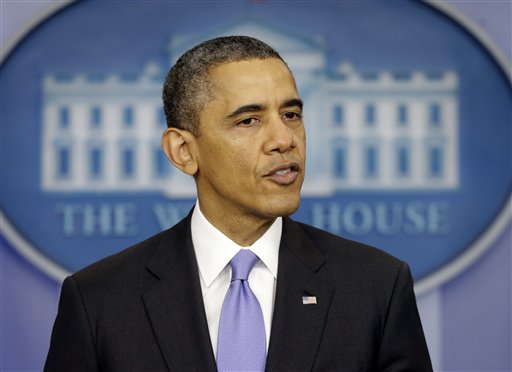WASHINGTON - The independent oversight board reviewing the U.S. government's surveillance programs briefed President Barack Obama this week on recommendations and key sections of its upcoming report, the task force's chairman said Friday.
The White House said Friday Obama will announce results of his review of the National Security Agency's surveillance programs on Jan. 17. Obama intends to lay out the changes he will make to the NSA's practice of collecting every American's phone records every day and other surveillance operations.
David Medine, who heads the Privacy and Civil Liberties Oversight Board, told The Associated Press the board's five members discussed details of their report with the president during a meeting Wednesday in the White House. Medine said the task force agreed to preview its recommendations to the president to help shape his decisions about changing the National Security Agency's surveillance programs.
"We wanted to be able to provide input into the decision-making process," he said.
Obama has also been meeting with lawmakers, intelligence officials, technology companies and privacy groups. And he is considering more than 40 recommendations from a presidential commission that proposed broad changes to the NSA's powers.
The oversight board's full report will be released to the White House, Congress and the public on Jan. 23, Medine said. The board, also known as PCLOB, is a semi-independent agency nominated by the president but reporting to Congress.
Obama is expected to announce curbs on U.S. spying on friendly foreign leaders. He's also seriously considering a plan that would strip the NSA of its ability to store phone record data from millions of Americans.
Obama asked the board last August to review the NSA's phone program and the operations of a secret federal surveillance court. He also appointed a second task force, the Review Group on Intelligence and Communications Technologies, to weigh in with recommendations.
The Review Group announced 46 recommendations last month. They included no longer allowing the NSA to collect phone records itself - but making such records available from phone companies or a third party - and appointing a public advocate to counter government lawyers in secret sessions of the Foreign Intelligence Surveillance Court.

